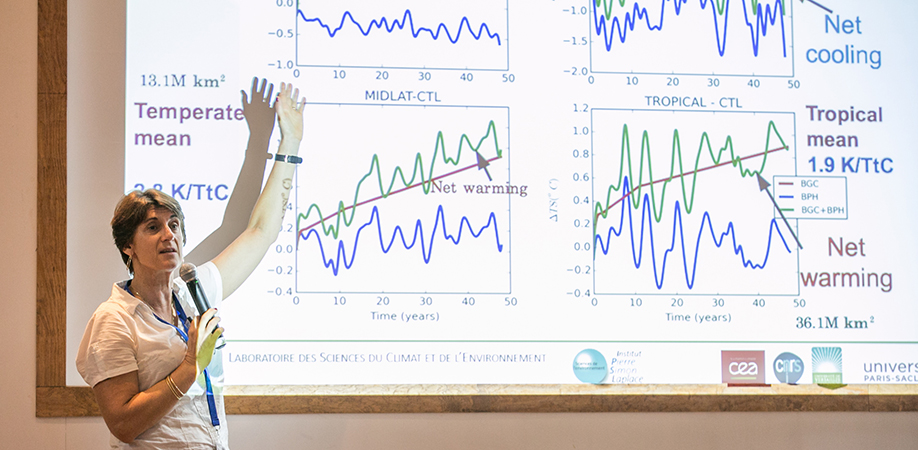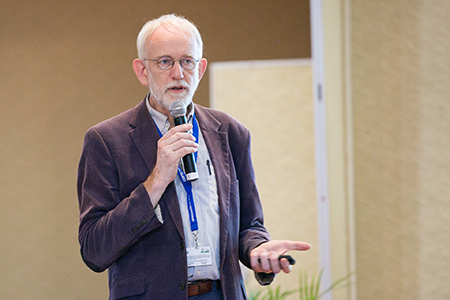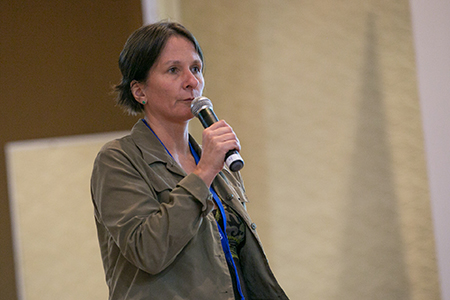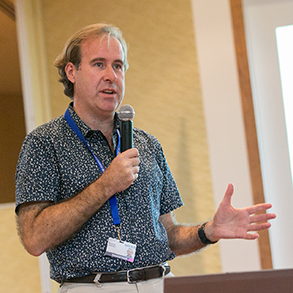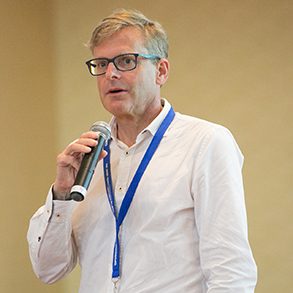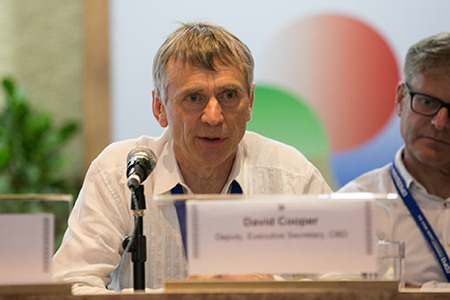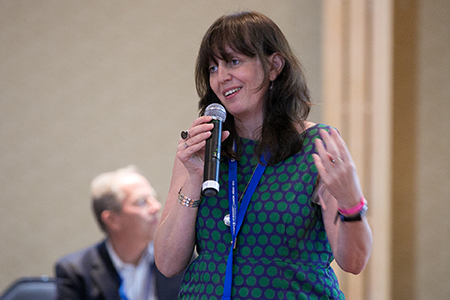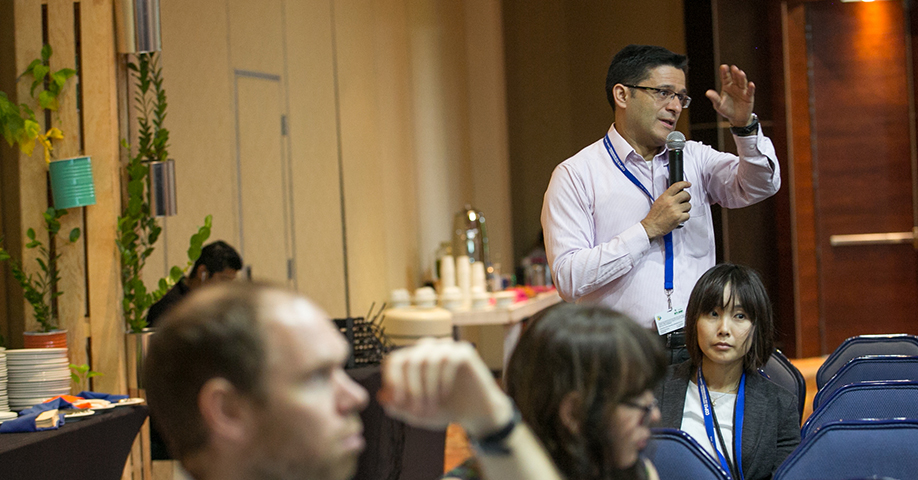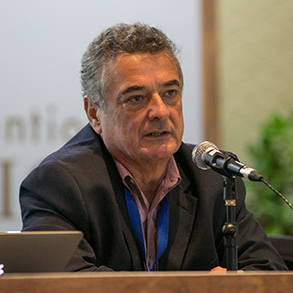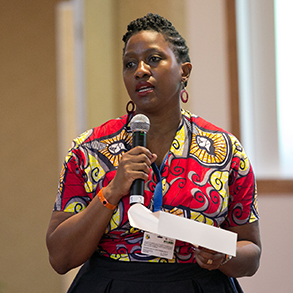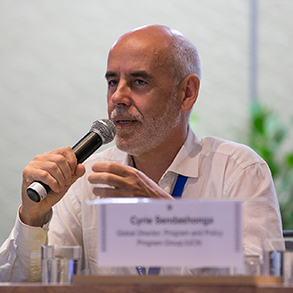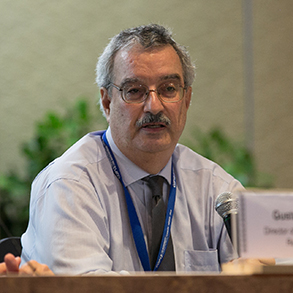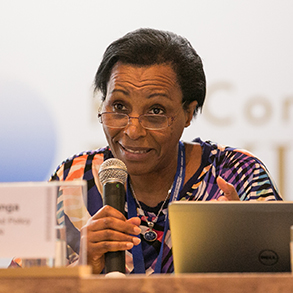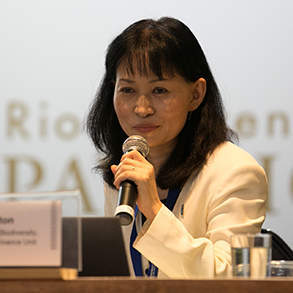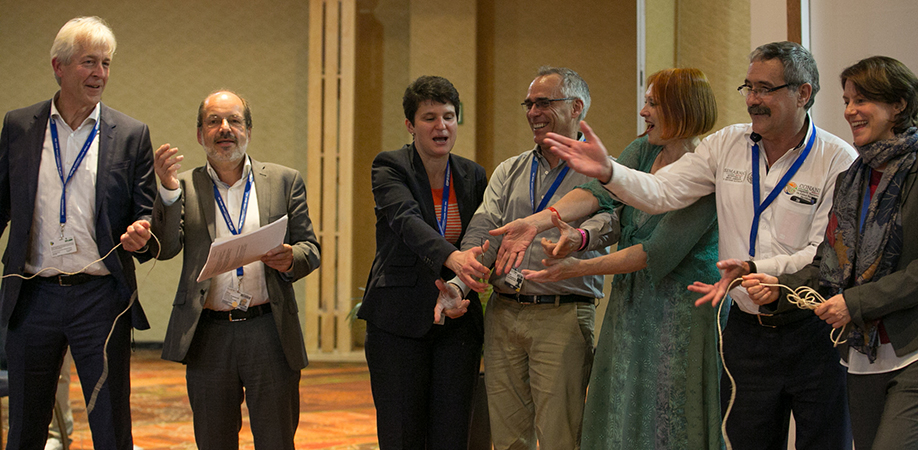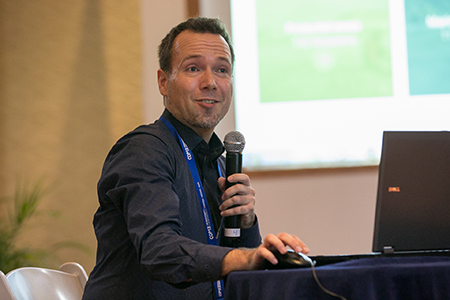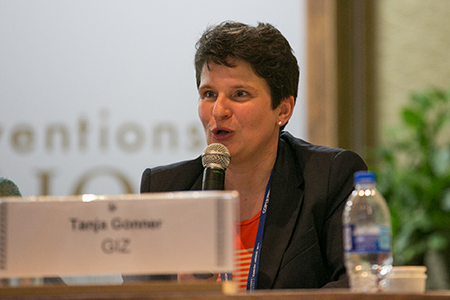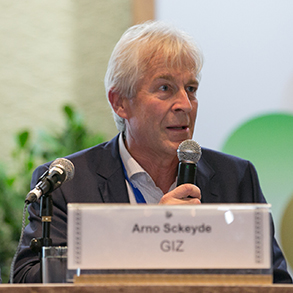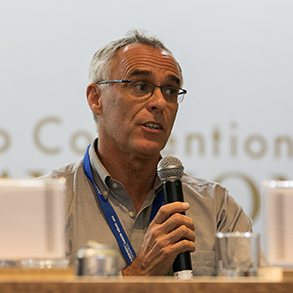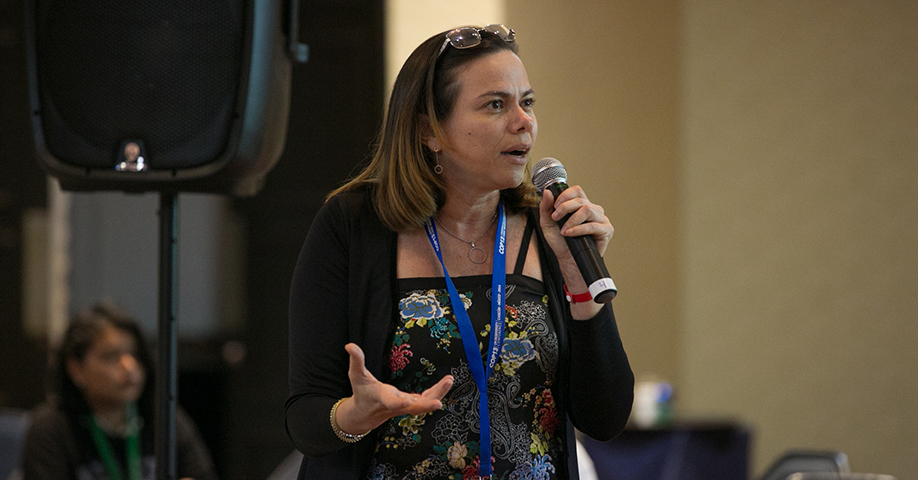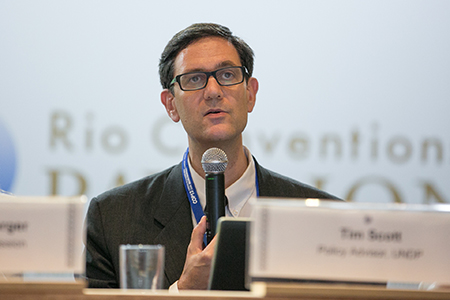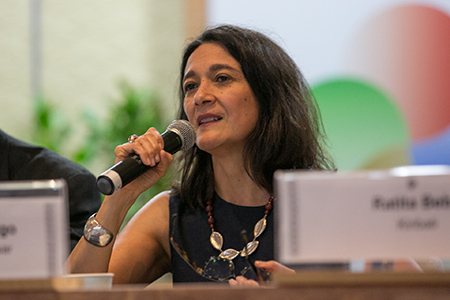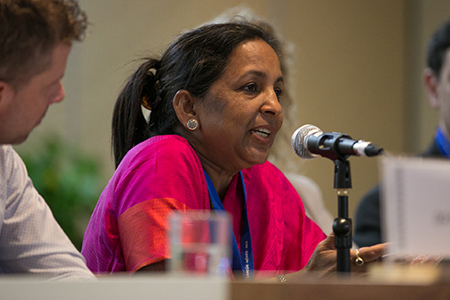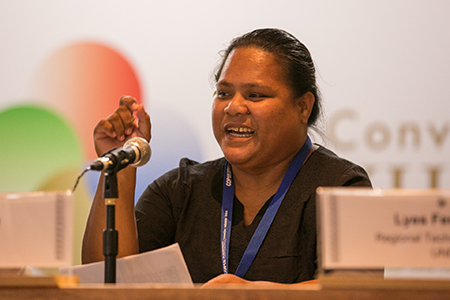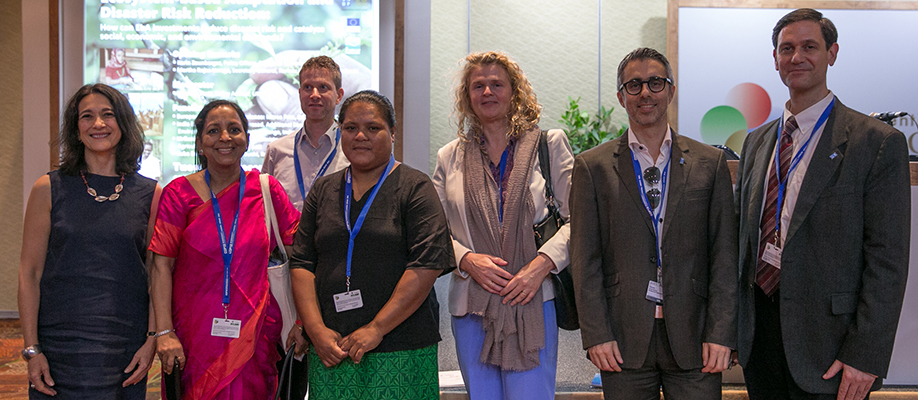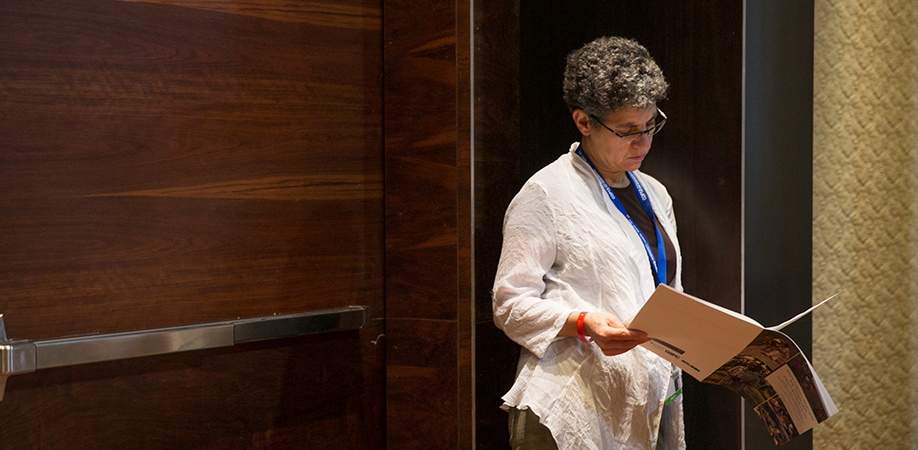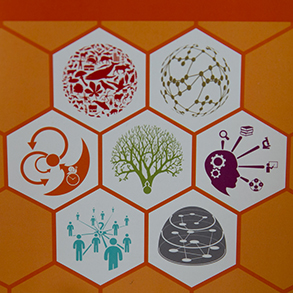Summary
The theme for the Rio Conventions Pavilion (RCP) on Tuesday, 6 December, was Biodiversity and Climate Change. Presentations and discussions focused on biodiversity and climate change scenarios and the role of global management strategies. Participants considered opportunities for promoting ecosystem-based approaches to climate mitigation and adaptation in light of the Paris Agreement and the Sustainable Development Goals (SDGs); and ecosystem-based approaches to climate change adaptation and disaster risk reduction (DRR).
The event was organized by the CBD Secretariat, UNEP-World Conservation Monitoring Centre, BirdLife International, Conservation International, the Government of South Africa, Global Environment Facility (GEF), European Commission, Ramsar Convention Secretariat, IUCN, UNDP and GIZ.
In the morning session, participants considered the role of global land management strategies in climate, biodiversity and sustainable development. Participants then broke into roundtable discussion groups to consider: land use and cover change modeling; food security and land use; and non-forest ecosystem-based mitigation. Participants also addressed what science can deliver for the Intergovernmental Science-Policy Platform on Biodiversity and Ecosystem Services (IPBES) and the Intergovernmental Panel on Climate Change (IPCC).
After lunch, participants discussed opportunities for promoting ecosystem-based approaches to climate mitigation and adaptation in light of the Paris Agreement, Sendai Framework for DRR and SDGs. Participants also discussed how ecosystem-based adaptation (EbA) investments can reduce DRR while catalyzing social, economic and environmental dividends, with case studies from India, Kiribati and Cuba.
The EbA Solutions Portal under the PANORAMA web-based knowledge-sharing platform was launched during the afternoon session, and IUCN launched its Global Synthesis Report on Biodiversity and the Ecosystem Approach to Disaster Risk Reduction, “Helping Nature Help Us.”
IISD Reporting Services, through its ENB+ Meeting Coverage, provided daily web coverage, daily reports and a summary report from RCP at CBD COP 13. A summary of the Rio Conventions Pavilion events is available in HTML and PDF.
Photos by IISD/ENB | Kiara Worth
For photo reprint permissions, please follow instructions at our Attribution Regulations for Meeting Photo Usage Page.
Session 1: Climate, biodiversity and sustainable development – the role
of global land management strategies
Nathalie de Noblet-Ducoudré, Laboratory of Climate and Environmental Sciences (LSCE), France
Wolfgang Cramer, Mediterranean Institute of Biodiversity and Marine and Continental Ecology (IMBE)
Almut Arneth, Institute of Meteorology and Climate Research, Germany
Mark Rounsevell, University of Edinburgh, UK
Lee Hannah, Conservation International
Paul Leadley, University Paris-Sud, France
David Cooper, Deputy Executive Secretary, Convention on Biological Diversity (CBD)
Melanie Heath, BirdLife International
Participants engage in discussions
Session 2: Opportunities for promoting ecosystem-based approaches to climate mitigation and adaptation in light of the Paris Agreement and the Sustainable Development Goals
Panel speakers during the session
Gustavo Fonseca, Global Environment Facility (GEF)
Sakhile Koketso, CBD Secretariat
Humberto Delgado-Rosa, European Commission
Braulio Ferreira de Souza Dias, Executive Secretary, CBD
Cyrie Sendashonga, IUCN
Midori Paxton, UNDP
Session 3: Ecosystem-based Adaptation and Disaster Risk Reduction (DRR)
Panelists cut a rope to symbolize the launch of the Ecosystem-based Adaptation (EbA) Solutions Portal
Mathias Bertram, GIZ
Tanja Gonner, GIZ
Arno Sckeyde, GIZ
Trevor Sandwith, IUCN
Yuri Hayashi, Ministry of the Environment, Japan
María Pía Hernández, IUCN
Session 4: Ecosystem-based Adaptation and Disaster Risk Reduction:
How can EbA investments reduce disaster risk and catalyze social, economic, and environmental dividends?
Panel (L-R): Marco Fritz, European Commission; Amita Prasad, Ministry of Environment, Forest and Climate Change, India; Karin Zaunberger, European Commission; Tim Scott, UNDP; Martha Rojas-Urrego, Secretary-General, Ramsar Convention on Wetlands; Ratita Bebe, Ministry of Environment, Land and Agriculture Development, Kiribati; and Lyes Ferroukhi, UNDP
Tim Scott, UNDP
Martha Rojas-Urrego, Secretary-General, Ramsar Convention on Wetlands
Amita Prasad, Ministry of Environment, Forest and Climate Change, India
Ratita Bebe, Ministry of Environment, Land and Agriculture Development, Kiribati
Panelists after the session

